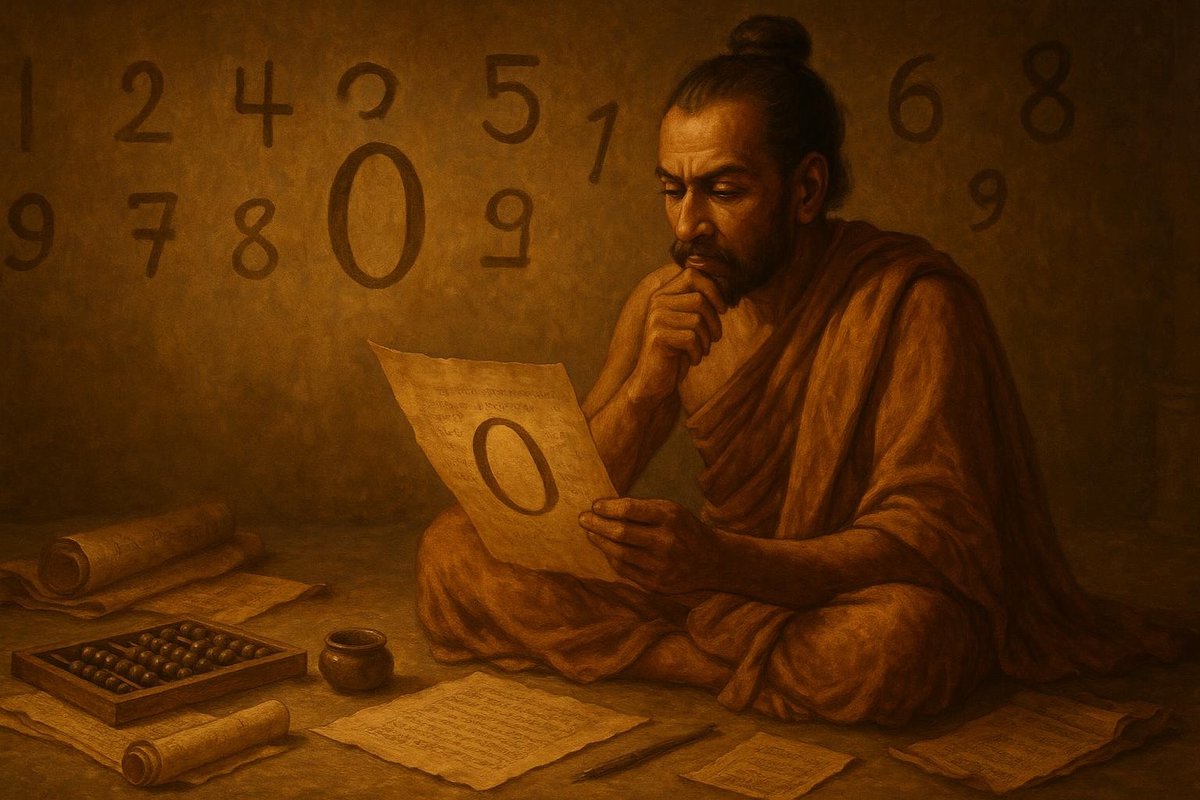
Introduction: The Quiet Revolution of Zero
In the vast chronicles of human thought, few symbols have held as much power and mystery as the number zero. From its humble origins to its profound implications, zero wasn’t merely a numerical novelty; it was a revolutionary concept that transformed mathematics and philosophy. But how did this seemingly simple idea emerge?
Early Influences: The Seeds of Zero
The journey of zero begins in ancient civilizations, where the need to represent ‘nothingness’ began to take shape. Interestingly, the earliest recorded use of a placeholder zero dates back to the Babylonians around 300 BCE. Yet, it was in ancient India where the numeral zero was fully realized as a number in its own right.
- The Babylonians used a symbol for zero in their positional number system.
- Indian mathematicians like Brahmagupta later conceptualized zero as a full-fledged number.
- Zero was used for calculations and as a crucial part of the decimal system.
No wonder India’s vibrant intellectual atmosphere during the Gupta Empire (circa 4th-6th century CE) allowed such groundbreaking ideas to flourish. A culture rooted in philosophical inquiry and scientific exploration created the perfect backdrop for zero’s emergence.
Mental Models: Shaping the Concept of Zero
Many people believe that the leap from ‘nothing’ to ‘something’ in mathematical terms is small. However, adopting zero required a shift in mental models, allowing people to think about numbers and operations differently.
- Zero introduced the concept of negative numbers and the idea of infinity.
- It enabled more sophisticated arithmetic and algebraic expressions.
- Zero became pivotal in calculus and set theory development in later centuries.
As time goes on, we see how zero’s intellectual lineage influenced not only mathematics but also the way humans perceive the world. Zero taught us about the importance of empty spaces, symmetry, and balance.
Challenges & Resilience: Overcoming Skepticism
Of course, not every groundbreaking idea is immediately accepted. Zero faced significant skepticism, particularly in Europe, where it was seen as a threat to traditional numerical systems.
- Medieval Europe was initially resistant to zero, viewing it with suspicion.
- Zero’s acceptance was accelerated by the work of Fibonacci in the 13th century, who introduced the Hindu-Arabic numeral system.
- The adoption of zero marked a shift towards modern mathematics.
Resilience in the face of intellectual adversity has been a constant theme in the story of zero. It was only through persistence and demonstration of its utility that zero took its rightful place in mathematics.
Legacy: Zero’s Enduring Impact
The legacy of zero extends far beyond ancient texts and mathematical treatises. It has become integral to technology, finance, and even the way we measure the world around us.
- Zero is foundational in computer science, enabling binary code systems.
- It plays a critical role in modern economic and statistical analysis.
- Zero is a symbol of potentiality and the infinite.
Reflecting on zero’s journey reminds us of the power of human curiosity and the continuous quest for understanding. Zero’s intellectual lineage is a testament to humanity’s ability to rethink and reshape the world.
Fuel Someone Else’s Curiosity
Inspired by zero’s journey from obscurity to prominence? Share this story with others and spark a conversation about how a simple concept can have profound implications. Encourage friends to explore the intersections of history, culture, and mathematics. Together, we can fuel the curiosity that drives new discoveries.
Conclusion: The Mindset of Zero’s Discoverers
The thinkers who dared to define ‘nothing’ left more than just a numeral; they left a legacy of intellectual bravery. Their mindset—curious, analytical, and unyielding—continues to inspire new generations. In our modern era of rapid change, adopting a similar mindset can empower us to challenge the status quo and imagine new possibilities.

Leave a Reply